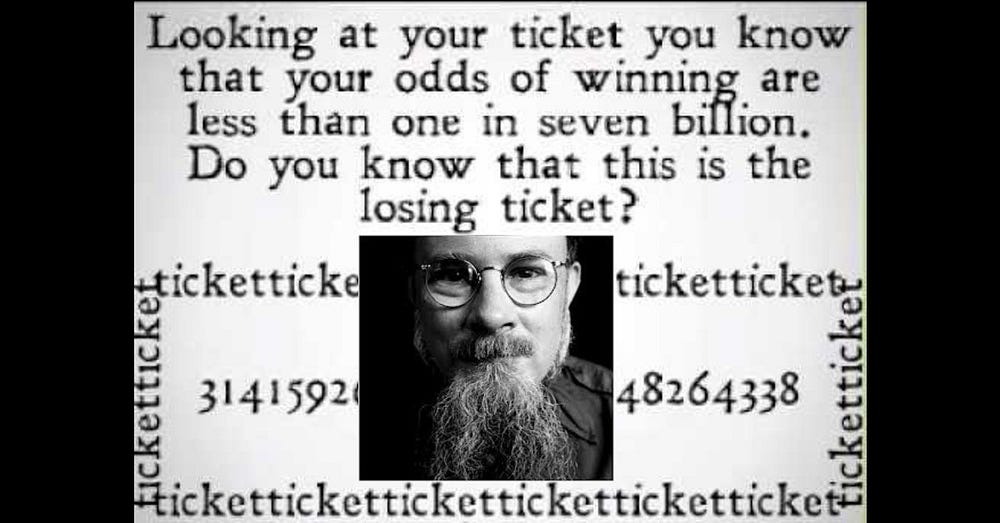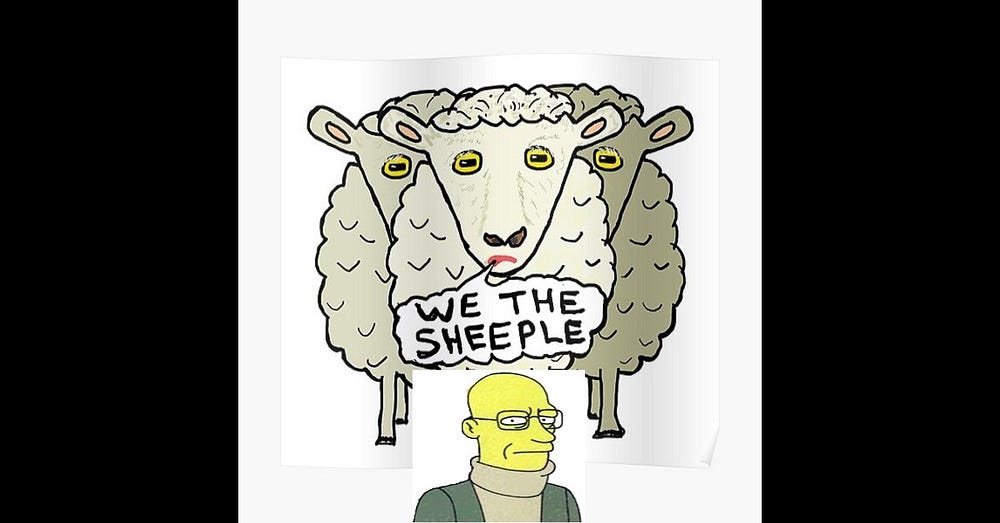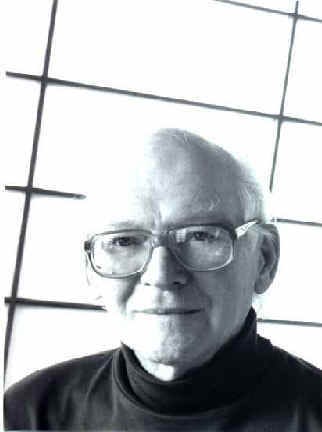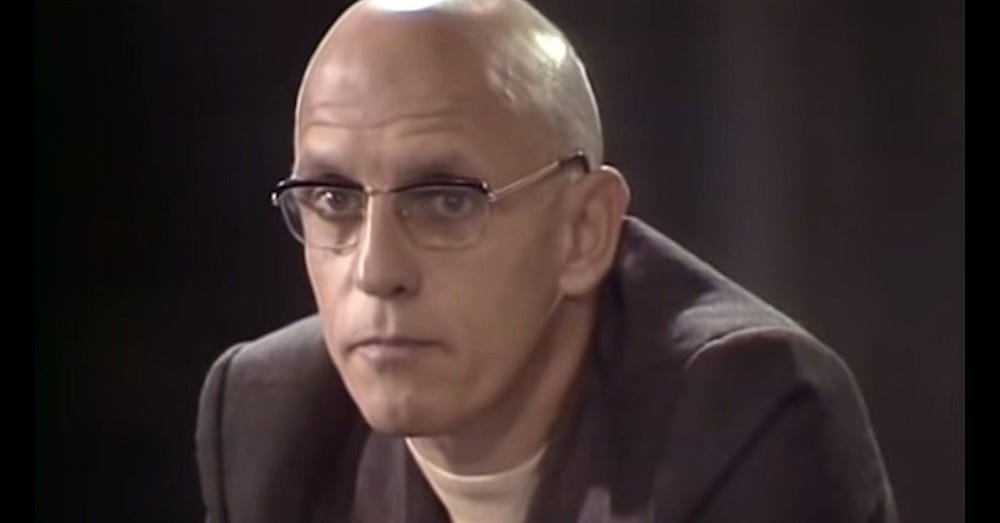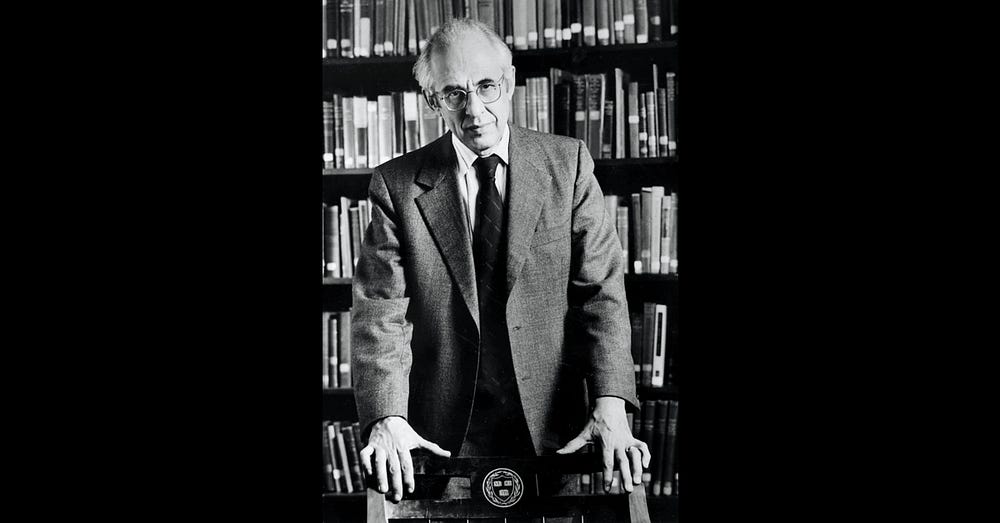Philosopher Dr. Kane Baker argues that there are hard problems of liquidity, white walls, balls, and, indeed, “everything”. He cites three examples: (1) There’s a logical possibility that “you have the same H₂O microstructure, but you just don’t have liquidity”. (2) You can look at a white wall, and yet it doesn’t “manifest as an experience of whiteness”. (3) It’s even logically possible that a “second billiard ball”, after being hit by another billiard ball, “explodes, or suddenly shrinks and disappears”.
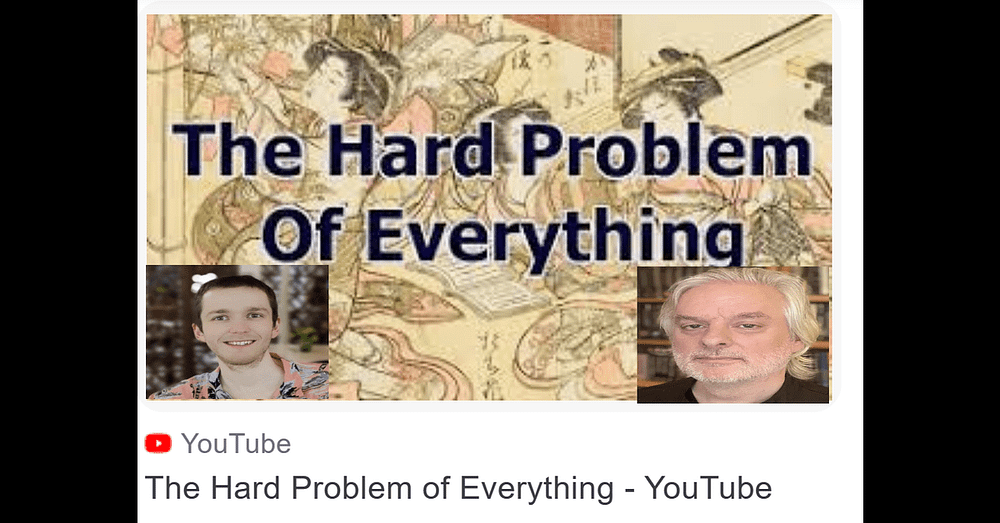
This essay is a commentary on Dr. Kane Baker’s YouTube presentation ‘The Hard Problem of Everything’. (On YouTube, Baker is known as Kane B.) I copied his spoken words from the YouTube ‘Show transcript’ function. Thus, I needed to edit his words a little in order to make them more readable. However, I didn’t change any of Baker’s philosophical content.
[The words “the hard problem of consciousness” were coined by the philosopher David Chalmers.]
Philosophical Why-Questions
Dr. Kane Baker offers his YouTube viewers a broad take on what can be called (using a hyphen) why-questions. He says:
“In general, when it comes to giving explanations, the why-questions can be extended indefinitely. [] You know the thing that sometimes kids do where they just ask why why why. They just endlessly ask why.”
Baker continues:
“That might be annoying, but of course you can do that, and it’s not really clear that there’s anything rationally illegitimate about doing that. [] Why not just ask why again and again?”
So are all these why-questions always (or only) annoying?
What needs to be said here is that many of those people who question these questions may not actually find them “annoying” at all. That is, philosophical why-questions aren’t always questioned because the critics are annoyed by them, or because they’re too lazy, philistine, materialistic, or scientistic to answer them. Instead, they may question why-questions for very good philosophical and/or scientific reasons.
In Kane Baker’s case, one solution to endless why-questions is to posit brute facts. (This will be discussed later.)
In Baker’s own words:
“So why-questions can can continue indefinitely, and then it seems like there’s really only going to be three ways to stop them. One option is to say, ‘Well, there actually just is no explanation. It’s a brute fact.’ [] So we’re just at the level of brute fact. [] It seems like eventually we just get to a point where you know we end up with a brute fact.”
There are, of course, other options other than positing brute facts. According to Kane, one option is simply to say, “I don’t know.”
[See the note (1) on Gordan Park Baker’s position on philosophical why-questions.]
Of course, the ultimate hard question is the one about consciousness.
The Hard Problem of Consciousness
So, firstly, Kane Baker sets the scene in the following way:
“Let’s say we have a theory [that] whenever you have a conscious state, that’s correlated with certain neural state. [] Whenever you have an experience of redness, that’s correlated with certain specific neural states of the brain.”
Baker then repeats a story by asking various familiar hard questions about these corelations:
“You can ask why do those correlations hold? That’s basically the hard problem of consciousness. It seems you could have those physical states without the experiential state. [] What we haven’t explained is why those correlations or connections to consciousness hold.”
What can we conclude from all this?
Baker states the following:
“The normal explanatory methods that we have in science are just not going to answer this.”
He continues:
“The thought is that even if we had a complete description of the physical states of the brain (the physical neural processes going on in the brain), we still wouldn’t really have an understanding of consciousness because we could we would still face this question of why is it that these neural states are the ones that realise consciousness.”
… But Baker then adds something extra, as well as something radical!
He tells us that
“but then I kind of feel that’s the case with everything”.
Baker’s first example (i.e., from the long list of “everything”) is the “underlying microstructure of water” and why it “manifests itself as liquidity”.
The Hard Problem of Liquidity
Kane Baker says:
“I don’t see anything logically incoherent here. Imagine a world where you have that microstructure, but you just don’t have liquidity — you have solidity or just something else. I think that this kind of why question is still there. Why does this correlation hold?”
[You do “have solidity” — or ice — under particular ambient conditions. However, that doesn’t really impact on Baker’s philosophical point.]
Baker is comparing (in a strong way) H₂O molecules and their relation to liquidity to the physical brain (or, perhaps, other physical things) and its relation to a conscious state.
Thus, Kane asks the following two hard questions about liquidity:
“Why does water have this property of liquidity? How do we explain the property of liquidity?”
Baker says that the obvious (scientific) answer to this hard question is that “we break [water] down into H₂O molecules” and then analyse their collective microstructure. However, that example of scientific analysis — or even reduction! — still doesn’t answer the hard question.
In Baker’s own words:
“Why is it the case that the H₂O molecules manifest as liquidity?”
Baker then mentions David Hume’s position on causation (see here) and connects it to the relation between H₂O molecules and liquidity. He says:
“Hume and lots of people have suggested that there are no conceptual connections between causes and effects.”
… Hang on a minute!
This comparison doesn’t seem to work in the case of liquidity.
This is because the relation of H₂O molecules to liquidity simply isn’t a question of cause and effect. The liquidity is always simply (as it were) there in the molecular microstructure of H₂O molecules.
[All this is to assume that certain ambient external physical conditions obtain. However, if they don’t, then H₂O molecules can, in particular cases, instantiate solidity, not liquidity.]
More clearly, cause and effect is (usually?) seen as being a temporal matter. That is, the cause proceeds — in time — the effect. However, when it comes to H₂O molecules and liquidity, you don’t firstly get an instantiation of a sufficient number of H₂O molecules, followed (in time) by liquidity. Instead, when you have a sufficient number of H₂O molecules existing under certain ambient conditions, then, at one and the same time, you also have liquidity.
What’s more, the Humean (psychological) point that the
“reason why we expect the second ball to start rolling in a particular direction is because that is what we have actually observed — at least in similar scenarios”
simply doesn’t apply to the microstructural properties of H₂O molecules and liquidity either. This is because we don’t expect liquidity “because that is what we have actually observed — at least in similar scenarios”.
The physical, chemical and structural facts about H₂O and liquidity aren’t really about what we expect (i.e., as in effects following causes) or even solely about our observations. The H₂O-liquidity story was largely theoretical and experimental in nature. So surely it was never the case that chemists frequently observed the microstructure of a set of H₂O molecules being followed by liquidity. As already stated, that’s because this isn’t a temporal or Humean phenomenon.
So this isn’t about our psychological habits either. [See Hume and ‘Principles of association’.]
Thus, the question as to why H₂O molecules “manifest as liquidity?” (or as ice) seems to be bogus. Again, this is because the structural and physical properties of H₂O molecules — among many other things posited by physics and chemistry — simply are (or they constitute) liquidity (i.e., under certain ambient conditions).
Thus, asking why H₂O molecules manifest as liquidity is almost the same as asking why the Morning Star manifests itself as the Evening Star or why Eric Blair manifested himself as George Orwell. More fundamentally, then, it’s not far from asking why x manifests as x.
To sum up.
H₂O molecules don’t manifest liquidity — at least not in Baker’s Humean sense. A set of H₂O molecules — under certain ambient conditions — simply have the property of liquidity.
However, a set of H₂O molecules isn’t one and the same thing as all human (sensory and psychological) experiences of liquidity. So perhaps this is what Baker is getting at.
All that said, it may well be the case that Baker isn’t using the word “manifest” in such a causal way!
After all, the word “manifest” isn’t necessarily — or automatically — tied to causality or to cause-then-effect reasoning. However, it’s in the nature of these philosophical why-questions that even if we accept that the relation between H₂O molecules and liquidity isn’t temporal or causal, then it can still be asked why H₂O molecules (under particular ambient conditions) have the property of liquidity!
[It needs to be added here — as already hinted at — that H₂O molecules are liquid only if the ambient temperature is somewhere between freezing and boiling, if there is sufficient gravitational attraction to hold the molecules together, etc. However, if all these (as it were) external physical conditions obtain, then the given H₂O molecules are liquid and all the arguments above still hold. Similarly, if freezing ambient conditions obtain, then H₂O molecules are (to use Kane Baker’s word) “solid” — that is, ice.]
In detail. Even though the structural and physical properties of H₂O molecules instantiate liquidity because the latter and the former are one and the same thing, it can still be asked why they do so.
Yet this is like asking the following question:
If we place four matchsticks at right angles to each other, then why do they constitute the shape of a square?
… Sure, but what about consciousness?
Is all the above also true of the physical basis of consciousness and consciousness itself?
Is there a time lag between the instantiation of certain brain states — and all the other internal and external physical things required for consciousness — and the instantiation of a conscious state itself?
An old-style identity theorist would simply say that the physical states are the conscious states. (This doesn’t stop it from being the case that a human subject will have a first-person mode of presentation of those physical states.) So this cause-then-effect reasoning simply wouldn’t work for such a theorist. That said, even if one isn’t an identity theorist, the idea of the sum of the physical states required for a conscious state being followed (in time) by that conscious state still seems wrong.
Brute Facts?
So, again, why is it the case that the H₂O molecules manifest as liquidity?
Here’s Baker’s brute fact option:
“They just do. It’s just a brute fact.”
Yet if you accept this brute fact for H₂O molecules and liquidity, then why not accept it for physical (or brain) states and a conscious state too?
Kane himself continues:
“Of course, you could say the same with consciousness. Why is it the case that these physical states of the brain manifest as consciousness? Well, it’s just a brute fact.”
There’s a problem here.
Whereas many people would accept the brute fact option for H₂O molecules and their relation to liquidity, they wouldn’t also accept it for physical states and their relation to consciousness.
In Kane’s own words:
“In the case of water and H₂O molecules, that particular brute fact seems to be intellectually satisfying to people. It seems to scratch the intellectual itch of explanation. In the case of consciousness, that’s not so right.”
So why are these two cases different?
Kane continues:
“When we explain all of the processes going on in the brain, that doesn’t scratch the intellectual itch.”
However, Baker doesn’t seem so see this as being a big deal. This is because he believes that “it seems to be purely a matter of people’s psychology”. That is:
“Some people find the the explanation satisfying. Some people don’t. And that’s it.”
Now to change tack again.
Just as Baker applies what is said about the hard problem of consciousness to the hard problem of liquidity, so now he discusses the hard problem of white walls.
The Hard Problem of White Walls
Firstly, this is a different case to H₂O molecules and their relation to liquidity. The simple reason for that is that in this new scenario Kane Baker is discussing people’s experiences of white walls. That is, unlike the microstructure of H₂O molecules and liquidity, Baker is now discussing what he calls a “phenomenal property”.
Baker says:
“When I look at a wall and I see a particular color, I’m undergoing a certain conscious state. I’m presented with a certain phenomenal property: the whiteness of the wall. There’s something it’s like to see the whiteness of the wall. And you can describe in complete detail all of the processes going on in my head. You can describe the patterns of stimulation on my retina. You can describe the information going down the optic nerve. You can describe all of the brain processes going on.”
But then comes Baker’s clincher:
“But even if you do complete that task, it seems like there’s still this further question of why would any of that stuff manifests as an experience of whiteness.”
In simple terms, then, why does the complete physical and chemical story of walls, white paint, our sensory systems and brains, etc. result in an experience of whiteness?
Moreover, we can now ask the very same questions which we formerly asked about the relation between brain states (or anything physical) and conscious states. That is:
“Why does that correlation hold [i.e., between walls and the experience of white]? Why is there that connection?”
Thus, Kane argues that what is true of consciousness “is true for literally everything else”. In other words, he believes that “there’s a hard problem of everything”. More radically, he concludes by saying that “everything escapes a complete scientific explanation”.
The Hard Problem of Balls
Kane Baker’s next (Humean) point is a little different too.
Rather than imagining effects not necessarily being tied to their causes, this time it’s a question of the effects being different — perhaps very different — to those we usually experience.
[This issue has been done to death in the literature of analytic philosophy, as can be seen when in comes to the debates about inverted qualia, absent qualia, dancing qualia, fading qualia, and suchlike.]
Baker says:
“Hume most famously makes this point that [if you] look at any given cause, you can imagine any effect could occur.”
Baker then provides an example of this:
“So if I imagine one billiard ball rolling along table and connecting with another billiard ball (because we’ve observed this sort of thing has happened many times), we expect that that what will happen is that the second billiard ball will move. But there’s no kind of conceptual or logical necessity to that. It could be the case that the first billiard ball rolls along the table, it touches the second billiard ball, and then the second billiard ball explodes, or the second billiard balls starts spinning, or the second billiard ball suddenly shrinks and disappears. Anything could happen.”
It’s interesting that David Hume (or at least Baker’s Hume) stressed imagination and logical possibility just as René Descartes had famously done before him (see here), and which David Chalmers still does today. That is, this is all a question of conceiving (or imagining) a second billiard ball doing things second balls don’t normally do. Or, in Baker’s own words, “there’s no kind of conceptual or logical necessity” that the second billiard ball behaves in the way second billiard balls usually behave. Thus, we can imagine (or conceive) of the second billiard ball, when hit by the first ball, flying off into a distant galaxy, turning into a chicken, etc. (These a logical possibilities, but not all are natural or metaphysical possibilities.)
So it’s somewhat inevitable that Baker also brings in possible worlds here.
Baker states the following:
“You could say, ‘Well the world I’m describing is not a possible world.’ In this context, that seems to be question begging because [we can ask], ‘Why isn’t it possible?’ ‘Why isn’t that a possible world?’”
Most scientists would never argue that Baker’s scenarios are impossible. Instead, they may ask what work these imaginings and posited possibilities are actually doing.
A second billiard ball exploding, or flying off into another galaxy, etc. may indeed be logically possible (or such things may occur in possible worlds) — but so what!
This repetitive and omnipresent stress (at least in analytic philosophy) on conceivings, conceptual possibilities, and what happens in possible worlds, is all well and good — but where does it all take us?
So perhaps many physicists would ignore (or even laugh at) these conceivings. That’s because there’s nothing to hold philosophical conceivers back when it comes to what they can — and cannot — conceive. In other words, almost anything goes when it comes to these philosophical conceivings (bar logical impossibilities).
In any case, Kane Baker’s general point is that what people say about the hard problem of consciousness can also be said about a second billiard ball, H₂O molecules and liquidity, our experiences of the whiteness of a wall, and, indeed, everything else.
*****************************************
Note:
(1) As the American-English philosopher Gordon Park Baker (1938–2002, and no relation to Kane Baker) put it:
“The unexamined question is not worth answering.”
Baker added:
“To accept a question as making good sense and embark on building a philosophical theory to answer it is already to make the decisive step in the whole investigation.”
Another problem is summed up by Gordon Baker:
“Questions, just as much as assertions, carry presuppositions.”
Baker’s questions about questions are partly Wittgensteinian in nature. Thus, readers can certainly note his Wittgensteinian points in the following:
“[T]o suppose that the answers to philosophical questions await discovery is to presuppose that the questions themselves make sense and stand in need of answers (not already available). Why should this not be a fit subject for philosophical scrutiny?”
Indeed, Wittgenstein did have things to say on the nature of many philosophical questions (both in his “early” and “late” periods). His position is partly summed up in this passage from Robert W. Angelo. (This ends with a quote from Wittgenstein himself.) Thus:
“[N]onsense in the form of a question is still nonsense. Which is to say that the question-sign [] can only be rejected, not answered: ‘What is undefined is without meaning; this is a grammatical remark.’ [].”
Another good way of summing up the problem with these philosophical why-questions is also cited by Gordon Baker. He wrote:
“To pose a particular question is to take things for granted, to put some things beyond question or doubt, to treat some things as matters of course.”
One obvious “presupposition” to a question is that there’s an answer to it — or at least a possible answer.
To sum up. Aren’t the askers of these types of philosophical why-questions “taking certain things for granted”? That is, aren’t they taking for granted that their questions are legitimate and that there are answers? Moreover, aren’t these questioners also “put[ting] some things beyond question or doubt”, as well as “treat[ing] some things as matters of course”?
My flickr account and Twitter account.






